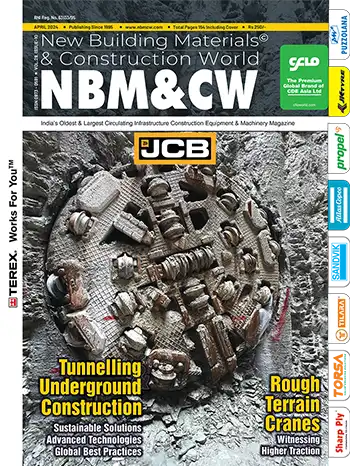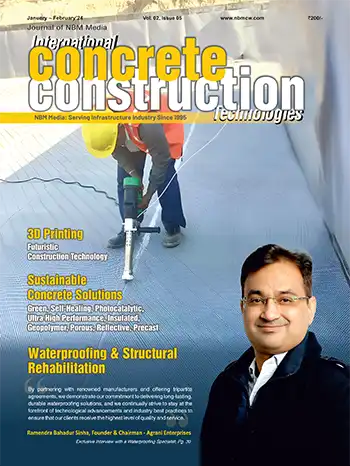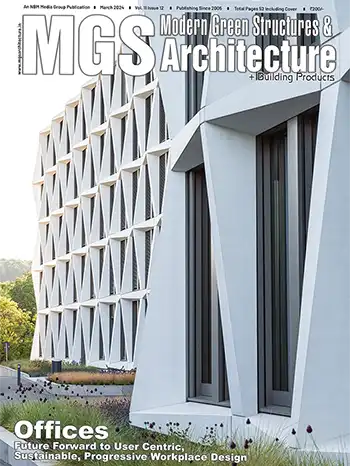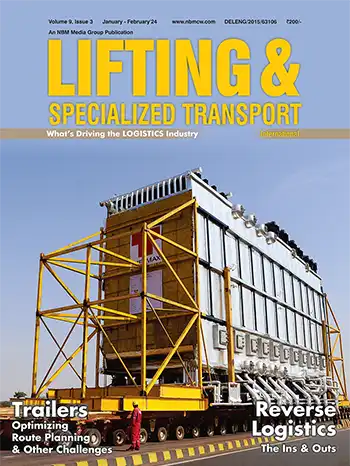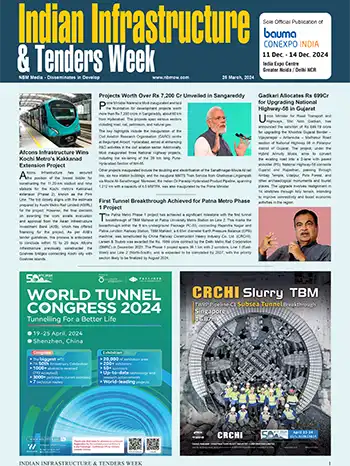Herrenknecht India Boring Through Challenges
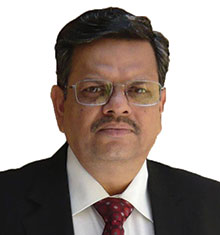
India is one of the fastest growing markets for tunnel construction and has attracted many overseas companies with sound tunneling know-how. What opportunities does Herrenknecht see in the Indian market for its tunneling technologies?
Undoubtedly, the scope for tunneling business in urban infrastructure and transportation is enormous in India. For Herrenknecht, we see India as one of our main markets from a business point of view. But to be able to contribute and push India forward, gradually turning it into a “smart country”, is what we are most proud of. Our strategy is to find the best solutions for safe and fast tunneling in cooperation with all project partners involved, even for the most demanding projects.
Tell us about Herrenknecht’s India's operation, products and services for this market.
Herrenknecht is the technology and market leader in mechanized tunneling and the only company that supplies tunneling machines for all ground conditions in a diameter range from 0.10 to 19 meters. We offer our customers a complete portfolio of mechanized tunneling technology, additional equipment and services, and therefore, complete project-specific solutions: we call them Full Range Solutions.
Herrenknecht TBMs are specially configured for geologies comprising hard rock, soft ground and mixed-face conditions, with high overburden and high ground water pressures.
India needs sustainable, efficient, economical, and environment-friendly infrastructure to reduce environmental impact, enhance visual impact, and minimize surface disturbance. India is way behind other emerging markets in using TBMs. However, with the Government of India´s renewed focus on infrastructure development, we expect to see a growing demand for TBMs in India in the coming years.
The various methods for tunneling have their advantages and limitations. As a leading manufacturer of TBMs, what is the machine’s versatility, cost-effectiveness and performance advantages in all strata?
Modern tunnel boring machines and construction technologies make it possible to build routes that run very close to ideal lines, bringing a real breakthrough for routes that would have been inconceivable in the past. The machines used are always designed for the purpose in question in each case depending, for example, on the geology, hydrology, the diameter or the construction site circumstances.
In comparison to other methods, the potential environmental impacts in terms of noise, dust and visual on sensitive receives are significantly less, and are restricted to those located near the launching and retrieval shafts. Compared to the cut-and-cover approach, disturbance to local traffic and associated environmental impacts and the quantity of C&D materials generated, are much reduced.
Currently, there are many TBM manufacturers competing in the Indian market; what is the USP of Herrenknecht TBMs?
Construction of tunnels, as we all know, requires a great degree of expertise, knowledge, experience and technological solutions to cope with unforeseen geological challenges. We consider ourselves as pioneers in underground construction, having unmatched experience, innovative engineers, and technological advantages over our competitors. We provide perfectly coordinated jobsite services, qualified personnel, high quality German TBMs, excavation tools and spares.
Herrenknecht is the only TBM company that has established a state-of-the-art TBM assembly and cutting tools manufacturing facility in Chennai, spread over 10 acres. We invested in India in the year 2007 but none of our competitors have done so yet; they provide only peripheral support to their machines. Indian customers have reposed their faith in Herrenknecht, which is evident from the fact that over 70% of tunneling is done using Herrenknecht 90+ TBMs.
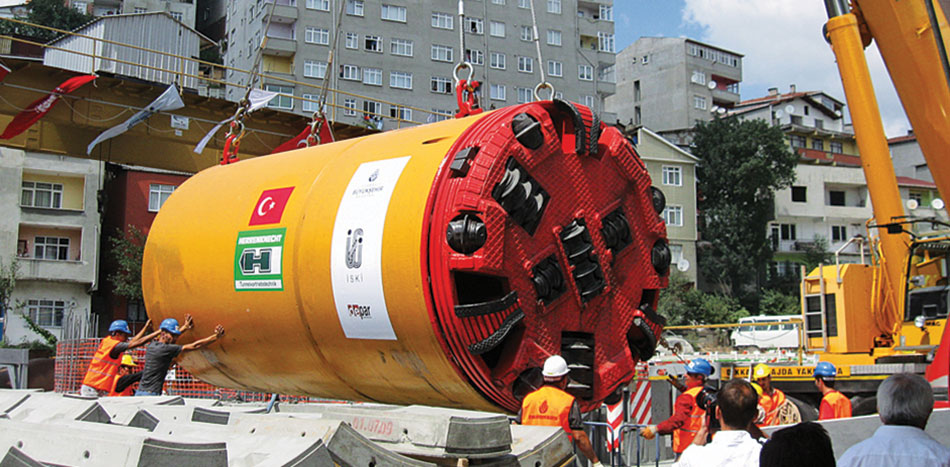
Please give a case study of one of the most challenging projects undertaken by Herrenknecht in India?
In India, Herrenknecht has been involved in numerous tunneling projects, namely, Delhi Metro, Chennai Metro, Bangalore Metro, Kolkata Metro, Ghatkopar, Veligonda, Mumbai Metro, Mumbai Water Stage IV, and the Ahmedabad Metro.
The Delhi Metro Case Study: The Delhi metro is now undertaking its third phase of construction, which will result in a further 160 km of new lines; 54 km of which are underground. Out of the 36 machines used, around 19 were of Herrenknecht. The tunneling is over 80% complete. A particularly tough section was the 1.25 km drive that ran beneath Delhi Airport's runway for a distance of 400 m. This meant that the contractor was not able to carry out geotechnical investigations.
Because of the unavailability of the geological data, the steps further ahead were unpredictable. The machine cutterheads and cutting tools were designed on the basis of available geological parameters. Rock and quartzitic rocks of around 200-210Mpa were encountered. Since these are very hard, the machine was designed accordingly, but, unfortunately, when the airport area was entered, where the survey was not possible, 350MPA was encountered. As a result, the construction costs ballooned from 14 - 15 USD per metre to around $35 as the hard rock quickly ate up the cutters. It was a huge cost and meant that we were only getting 4-5 meters per day, so progress on this section was 2-3 months behind schedule. However, better progress was achieved on another drive where they avoided the rock and used the soil EPB machine.
What about the challenges that manufacturers face in India?
My experience working here has been challenging as well as satisfactory. To work on different projects that ultimately contribute in the making of a better India means the most to me. I believe that India´s growth potential is very high and we will achieve our goals in no time.
The key challenges for manufacturers, I believe, can be lack of development of infrastructure and faster logistics. Manufacturing needs timely availability of quality raw material and spare parts at reasonable cost. Since infrastructure is not fully developed and good logistics are not available, companies are forced to maintain a high inventory of spare parts, which adds to the cost of manufacturing. Also, the fact that imported machines are duty-free is a huge problem for the manufacturers. When we manufacture everything here, the cost generated is much higher because of different types of taxation.
Herrenknecht is the first TBM company to set up a manufacturing unit in India. What prompted such a major investment in the initial phase of its entry (in 2007) in the country, and what benefits the company reaping currently?
Herrenknecht is the only TBM manufacturer that has established a state-of-the-art TBM assembly and cutting tools manufacturing facility in India. Herrenknecht founder Dr. Martin Herrenknecht believes that wherever the company is planning to invest, there is a need to set up a proper manufacturing facility first.
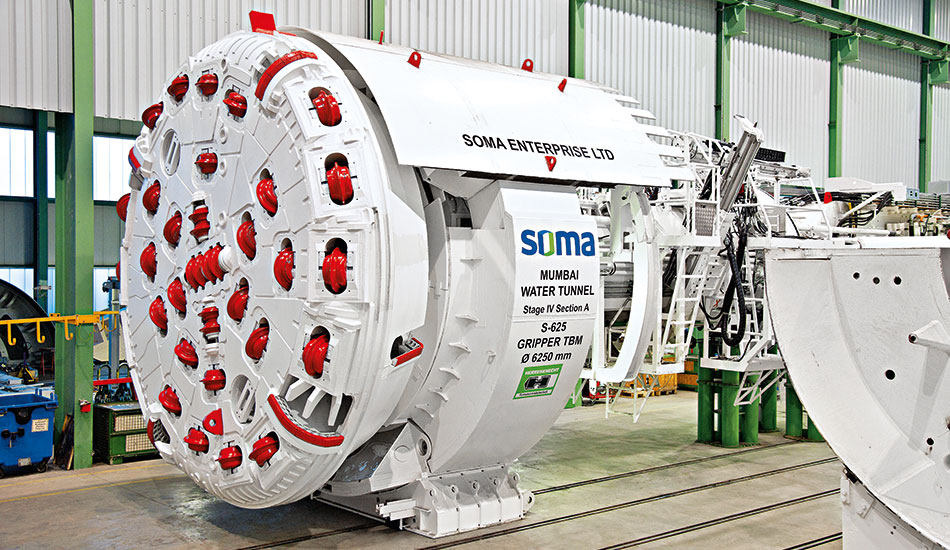
Herrenknecht India Pvt. Ltd. is located on a 40,000 m2 site in the outskirts of Chennai. The company has successfully implemented a quality management system and is now certified in accordance with ISO 9001. Our Chennai facility also specializes in TBM refurbishment / upgradation, manufacture of cutting tools, and as a centralized supply of spare parts. Herrenknecht Chennai facility exports parts, cutting tools, and fully-assembled TBMs to various projects in Asia and Europe.
Facilities include 2,250 m2 TBM assembly / rebuild of up to 10 TBMs per annum complete with 80 and 20-ton gantry cranes. An 840 m2 indoor assembly area for in-house manufacture of steelworks of TBM back-up systems, cutterheads, rolling stock and shutters. Workshops for manufacture of rock disc cutters and other cutting tools. An 830 m2 indoor storage for spare and wear parts. A pool of 90 expatriate and Indian TBM specialists ensure the best service.
Please elaborate on the refurbishment of TBMs.
TBMs are unique machines designed specifically as per the requirements of a particular project. But they can be used again after the project is completed. TBM refurbishment is an ideal method as it saves time, as the deliveries can be made quicker if the conditions are suitable. However, a systematic examination, professional refurbishment and, if necessary, an adaptation of individual components in line with the new project requirements must be carried out before reuse - all of which are performed at our Chennai facility.
Herrenknecht is the only TBM company with its own workshop for OEM refurbishment of TBMs in India. This becomes increasingly important as OEM refurbishment is a mandatory tender requirement on many projects in the country. Herrenknecht also re-manufactures TBMs as per customer/project requirements.
NBM&CW May 2018














